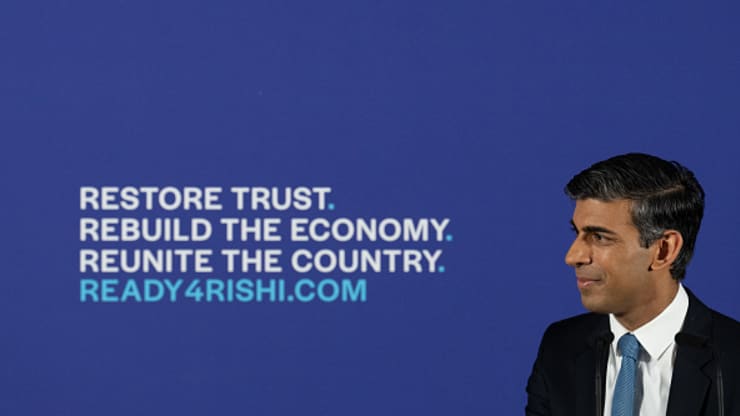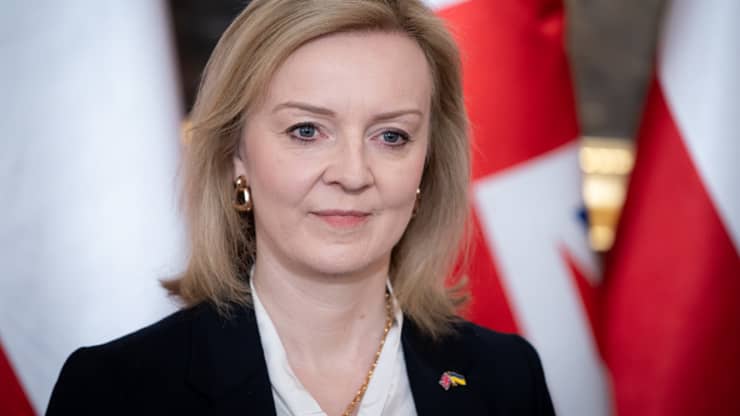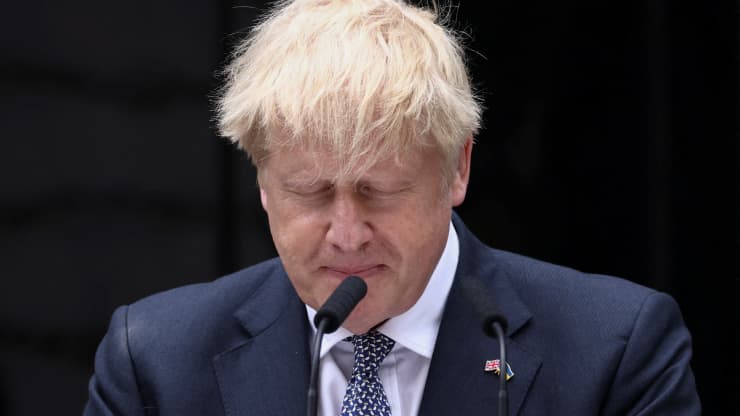LONDON — The U.K.’s ruling Conservative Party has begun its race to find its next leader, and the country’s next prime minister, with eight candidates now in the running for the top job.
The candidates all had to win the initial backing of at least 20 of their fellow Conservative lawmakers in order to proceed to the first round of voting which takes place Wednesday.
In order to whittle the number of candidates down to just two, more votes will now take place – beginning Wednesday – with the 358 Conservative MPs asked to choose their favorite candidate to take over the party.
Any candidate receiving less than 30 votes from his or her fellow MPs will be eliminated in the first round of voting. Then in the second round, the candidates with the fewest votes are eliminated. These rounds of voting continue until two candidates remain, which is expected to happen by the end of this week.
When two candidates remain, all the members of the Conservative Party (some 200,000 people) are asked to vote by postal ballot on their favorite candidate. The winner is expected to be announced on Sept. 5.

Carl Court | Getty Images News | Getty Images
The eight candidates include well-known faces, such as former Finance Minister Rishi Sunak — one of the favorites to win — and Foreign Secretary Liz Truss and new Finance Minister Nadhim Zahawi, as well as those with less high-profiles such as Tom Tugendhat, Suella Braverman and Kemi Badenoch.
Former Health Minister Jeremy Hunt is also in the race, as well as Penny Mordaunt, international trade minister, another of the favorites who’s popular with grassroots party activists. Sajid Javid, former health secretary, withdrew from the leadership race on Tuesday.
Showing some division among Tory MPs and those among the more grassroots Conservative Party members and activists, Penny Mordaunt, a former defense secretary, topped a poll of Tory party members this week on who should be the next leader, with 20% of the vote.
Ex-local government minister Kemi Badenoch was seen with 19% of the vote, followed by Rishi Sunak on 12%, according to the poll of over 800 Tory party members on Tuesday by website Conservative Home.

Mateusz Wlodarczyk | Nurphoto | Getty Images
Tuesday night, the eight candidates had 12 minutes each to try to convince their fellow MPs why they should be the next leader of the party and the country. Several promised to cut taxes and unite the party after the spectacular fall of Boris Johnson, who remains as prime minister but only in a caretaker role while his replacement is found.
Summing up the economic implications of the candidates expected to proceed to at least a second round of voting, Daiwa Capital Markets said that “at the time of writing, former Chancellor Rishi Sunak looked odds-on to make it to the second round. There he is most likely to face a challenger from the populist right wing — most likely Foreign Secretary Liz Truss or Trade Minister Penny Mordaunt.”
“While Sunak has argued against any further near-term loosening of fiscal policy, Truss, Mordaunt and several others have argued for unfunded tax cuts, which would arguably be inflationary and would likely lead to more monetary tightening than would be the case under a Sunak premiership,” Daiwa said in a note Tuesday.
Wide-open race
The leadership contest has come about after Johnson resigned as party leader last week after months of controversy over his conduct while in office. His government has been plagued by scandals over parties during Covid-19 lockdowns and several party officials have been hit with sleaze allegations.
The final straw for many MPs who had previously supported Johnson, despite his less than conventional style of leadership, was his appointment of a deputy chief whip (responsible for party discipline) who had previous sexual misconduct allegations made against him of which Johnson was aware. That led to a wave of resignations with ministers and officials saying Johnson no longer commanded their confidence.
Describing Johnson’s departure as a “Bjexit,” Ian Bremmer, president of Eurasia Group, commented this week that “near term, U.K. policy is paralyzed by the caretaker government’s lack of a mandate (whether Johnson-led or under a new temporary prime minister” and that economic, foreign and defense policy are “essentially in stasis until there’s new leadership in the fall.”

Henry Nicholls | Reuters
“It’s a wide open race for the fall … but either way, Johnson’s two most important foreign policy initiatives—on Europe and on Ukraine — aren’t going to change. On the former, with Brexit and euroskepticism already firmly in place for the Conservative Party, there’s no lane for a softer Europe policy, even on the contentious Northern Ireland issue, among premiership competitors,” Bremmer noted on Monday.
European leaders, and particularly France’s President Emmanuel Macron, are happy to see the back of Johnson and will have less dysfunctional personal diplomacy with his successor, but the overarching U.K.-EU relationship will remain significantly strained, Bremmer added.
“That leaves plenty of uncertainty domestically— on fiscal easing and corporate tax policy for example. But I don’t see fireworks over who leads the United Kingdom driving much drama outside of old Blighty.”

